
Bremen: A Historic Port City with Modern Charm
Bremen, located in Northern Germany, is a city rich in history and culture. Known for its maritime heritage and the iconic statue of the Bremen Town Musicians, this city offers a blend of medieval charm and modern vibrancy. As you stroll through the cobbled streets of the old town, you'll encounter stunning Gothic architecture, charming squares, and the impressive Bremen Cathedral. The Marktplatz, or Market Square, is a must-visit, featuring the Roland Statue and the Town Hall, both UNESCO World Heritage sites. Bremen is also known for its scenic riverfront along the Weser River. The Schlachte Promenade is the perfect spot to enjoy a leisurely walk, dine at riverside restaurants, or take a boat tour. For nature enthusiasts, the Bürgerpark provides a green oasis with picturesque landscapes and serene lakes. The city also boasts a vibrant cultural scene, with numerous museums, theaters, and music venues. The Universum Science Center and the Übersee-Museum are particularly popular attractions. Food lovers will delight in Bremen's culinary offerings, which include traditional German dishes and fresh seafood. Be sure to try the local specialty, Bremer Knipp, a type of sausage, and wash it down with a glass of Beck's beer, brewed right in the city. With its rich history, beautiful sights, and diverse attractions, Bremen is a destination that promises an unforgettable experience.
Local tips in Bremen
- Visit the Schnoor Quarter for a glimpse of Bremen's oldest neighborhood, filled with narrow lanes and quaint houses.
- Take a guided tour of the Town Hall and learn about its fascinating history and architectural significance.
- Enjoy a cruise on the Weser River to see the city from a unique perspective and relax on the water.
- Check out the local markets, especially the weekly flea market along the Bürgerweide, for unique souvenirs and local crafts.
- Use public transport, especially trams, to get around the city easily and efficiently.
Neighbourhoods in Bremen
Bremen: A Historic Port City with Modern Charm
Bremen, located in Northern Germany, is a city rich in history and culture. Known for its maritime heritage and the iconic statue of the Bremen Town Musicians, this city offers a blend of medieval charm and modern vibrancy. As you stroll through the cobbled streets of the old town, you'll encounter stunning Gothic architecture, charming squares, and the impressive Bremen Cathedral. The Marktplatz, or Market Square, is a must-visit, featuring the Roland Statue and the Town Hall, both UNESCO World Heritage sites. Bremen is also known for its scenic riverfront along the Weser River. The Schlachte Promenade is the perfect spot to enjoy a leisurely walk, dine at riverside restaurants, or take a boat tour. For nature enthusiasts, the Bürgerpark provides a green oasis with picturesque landscapes and serene lakes. The city also boasts a vibrant cultural scene, with numerous museums, theaters, and music venues. The Universum Science Center and the Übersee-Museum are particularly popular attractions. Food lovers will delight in Bremen's culinary offerings, which include traditional German dishes and fresh seafood. Be sure to try the local specialty, Bremer Knipp, a type of sausage, and wash it down with a glass of Beck's beer, brewed right in the city. With its rich history, beautiful sights, and diverse attractions, Bremen is a destination that promises an unforgettable experience.
When is the best time to go to Bremen?
Iconic landmarks you can’t miss
Schnoor
Discover Bremen's enchanting Schnoor district, a medieval maze of cobblestone streets, artisan shops, cozy cafes, and captivating history, just steps from the city center.
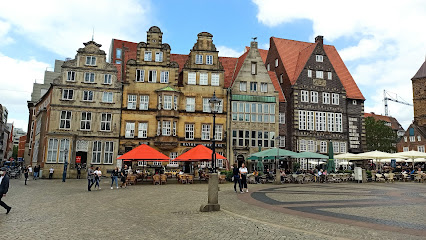
Town Musicians of Bremen
Visit the iconic bronze statue of the Town Musicians of Bremen, a symbol of unity and hope from the Brothers Grimm fairy tale, located in the heart of Bremen's historic city center.
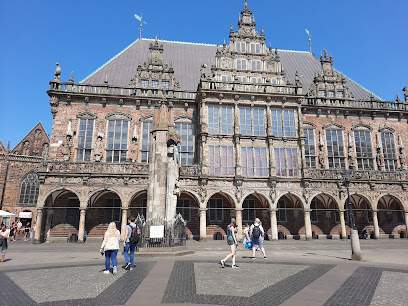
Bremen Market Square
Discover Bremen Market Square, a UNESCO World Heritage site and the vibrant heart of Bremen, where history, architecture, and culture converge in a captivating Hanseatic setting.
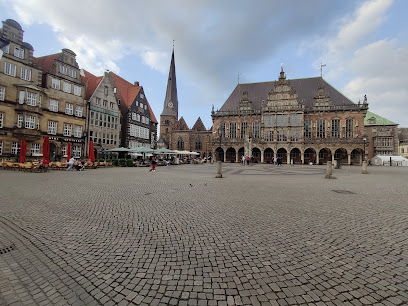
Wallanlagen
Discover Bremen's tranquil green oasis: the Wallanlagen, a historic park blending nature, culture, and iconic landmarks like the Windmill am Wall, offering a serene escape in the city center.
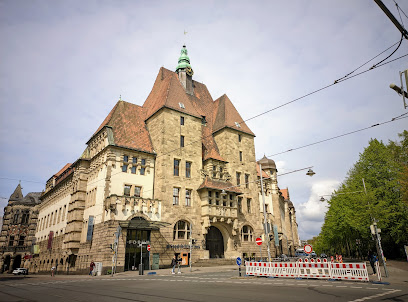
Universum Bremen
Explore the wonders of science at Universum Bremen: an interactive museum with hands-on exhibits for all ages, fostering curiosity and discovery in technology, humankind, and nature.
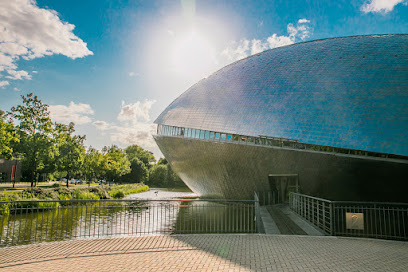
Bremen Roland
Discover the Bremen Roland, a UNESCO World Heritage site and a powerful symbol of freedom and market rights in the heart of Bremen's historic Marktplatz, embodying the city's rich Hanseatic past.
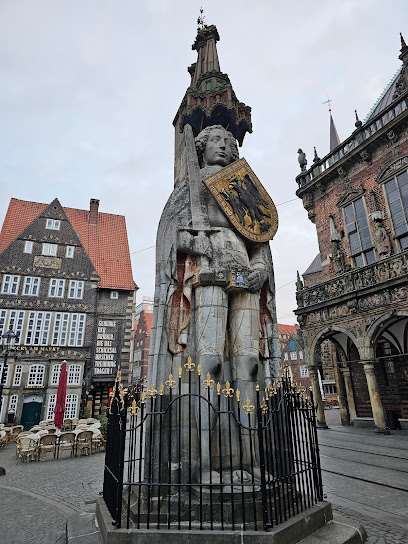
St. Petri Dom Bremen
Discover Bremen's historical heart at St. Peter's Cathedral, a magnificent landmark blending Romanesque and Gothic architecture, housing ancient crypts and offering panoramic city views.
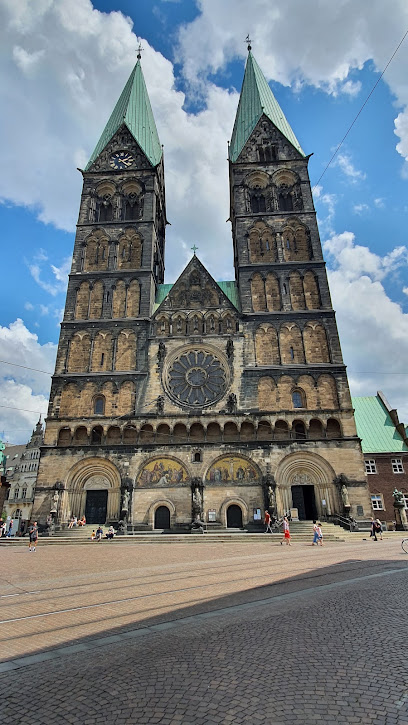
Valentin submarine pens
Explore the haunting Valentin Submarine Pens in Bremen, a WWII-era U-boat factory built by forced labor, now a powerful memorial and information center.
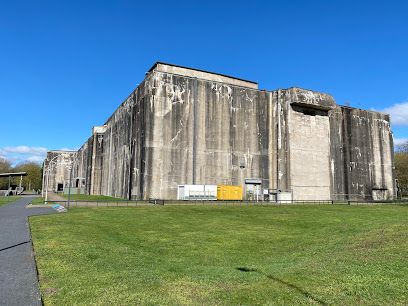
Martinianleger
Discover Bremen's maritime heart at Martinianleger: a historic pier offering river cruises, scenic views, and a vibrant connection to the city's Hanseatic past.
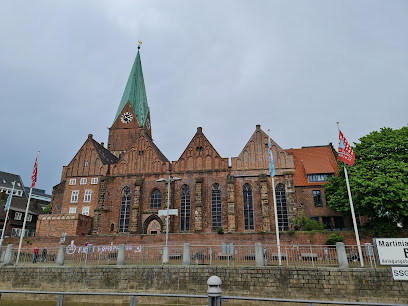
Kunsthalle Bremen
Explore over 600 years of European art at Kunsthalle Bremen, from Renaissance masterpieces to modern media, in a blend of classic architecture and contemporary design.
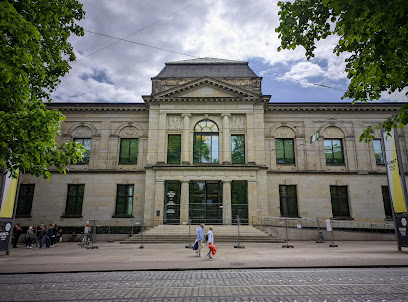
Overseas Museum, Bremen
Explore the world's cultures and natural wonders at Bremen's Übersee-Museum, a unique blend of ethnography, natural history, and global trade, located steps from the main train station.
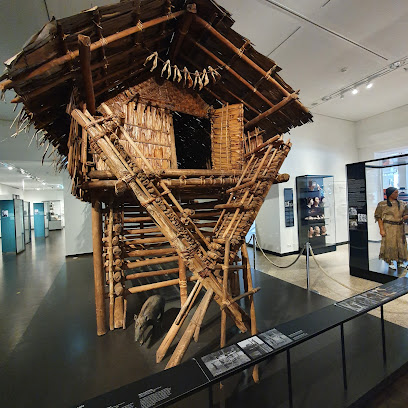
Bürgerpark Bremen
Discover Bremen's green heart: Bürgerpark, a 200-hectare oasis of gardens, woodlands, and lakes, offers a serene escape and diverse leisure activities for all ages.
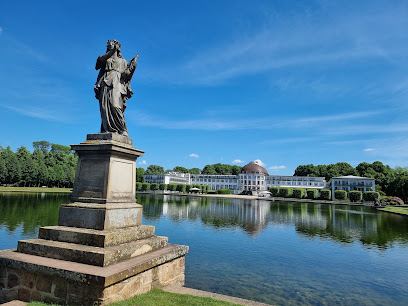
Bremen Town Hall
Explore Bremen Town Hall, a UNESCO World Heritage site, where Gothic and Renaissance architecture blend seamlessly, revealing centuries of Hanseatic history and civic pride in Germany.
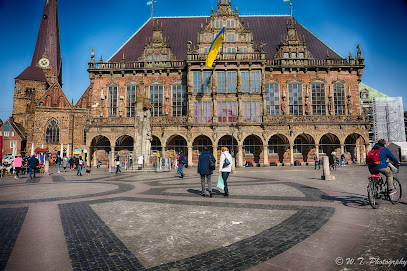
Bremer Geschichtenhaus | bras e.V.
Experience Bremen's history come alive at the Bremer Geschichtenhaus, a living museum in the heart of the Schnoor district, where costumed actors bring the city's past to life.
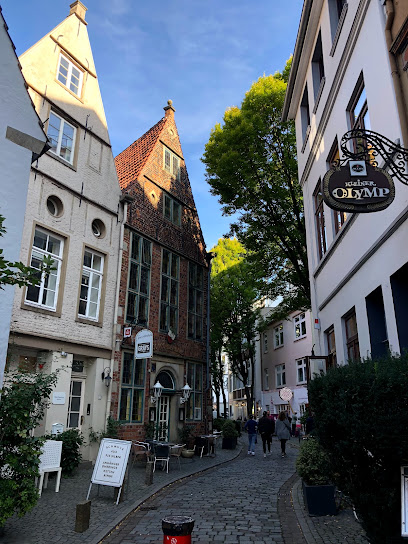
Glockenspiel House
Experience the enchanting melodies and captivating artistry of Bremen's Glockenspiel House, a historical landmark nestled in the heart of the city's unique Böttcherstraße.
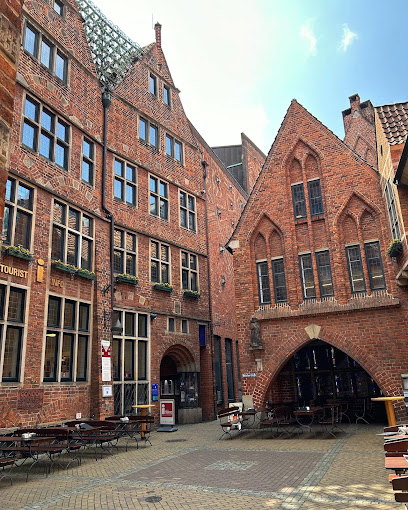
Unmissable attractions to see
Schnoor
Explore Schnoor, Bremen’s historic district, where medieval charm meets modern vibrancy in a captivating neighborhood filled with history and culture.
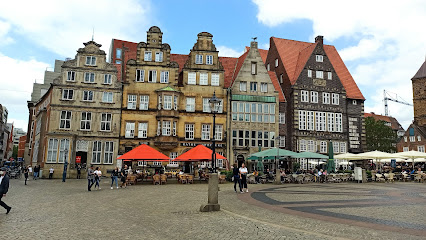
Town Musicians of Bremen
Explore the legendary Town Musicians of Bremen, a charming statue celebrating friendship and adventure in the heart of Bremen's historic Innenstadt district.
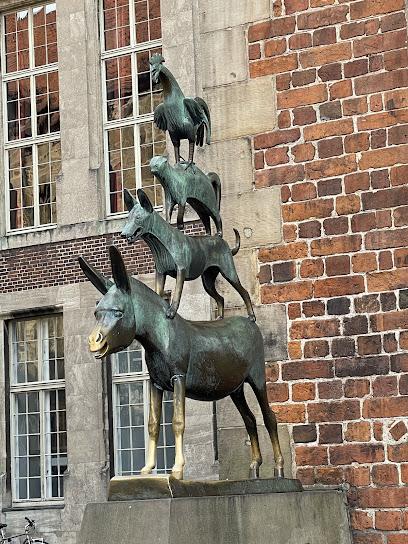
Rhododendron-Park Bremen
Explore the enchanting Rhododendron-Park Bremen, a botanical paradise filled with vibrant flowers, serene landscapes, and abundant wildlife for a perfect day in nature.
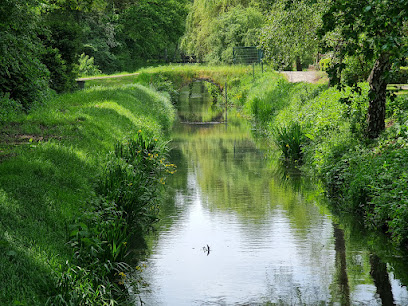
Bremen Market Square
Explore Bremen Market Square, a UNESCO World Heritage site, where history meets vibrant local culture in the heart of Bremen.
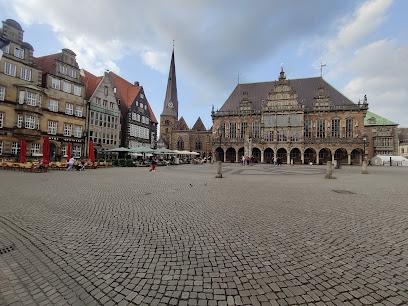
Universum Bremen
Explore the wonders of science and technology at Universum Bremen, an interactive science museum perfect for curious minds and families.
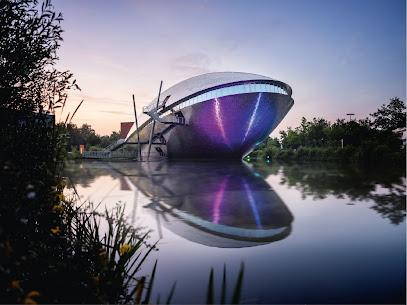
St. Petri Dom Bremen
Visit St. Petri Dom Bremen, a stunning cathedral showcasing Gothic architecture, rich history, and breathtaking views of the city.
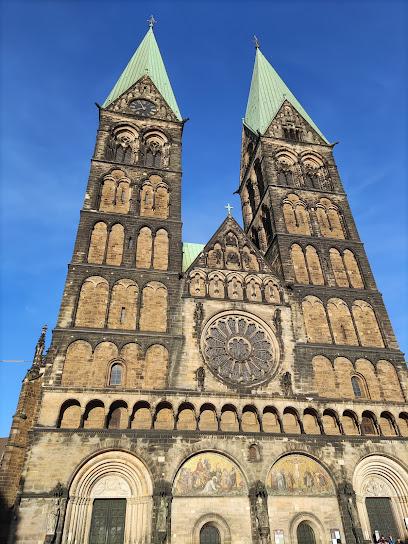
botanika
Explore the beautiful Botanika in Bremen, a unique blend of botanical garden, amusement park, and educational museum nestled in the stunning Rhododendron Park.
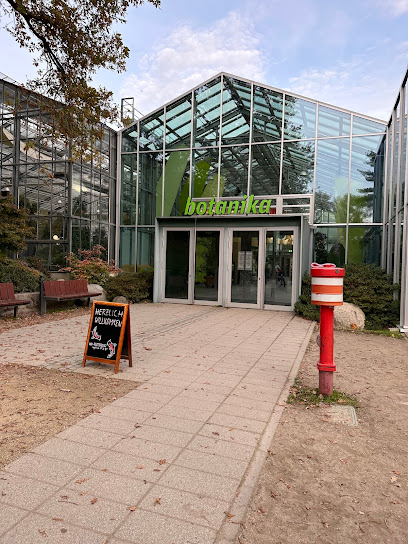
Kunsthalle Bremen
Explore the diverse art collection of Kunsthalle Bremen, a cultural jewel in Germany, featuring masterpieces from renowned artists across centuries.
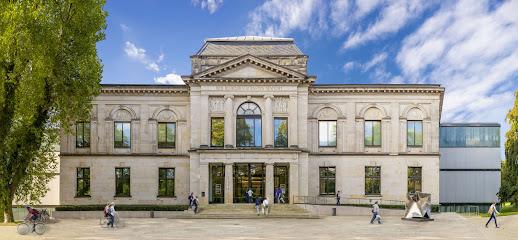
Overseas Museum, Bremen
Explore diverse cultures and natural wonders at Bremen's Overseas Museum, a captivating destination for tourists seeking knowledge and adventure.
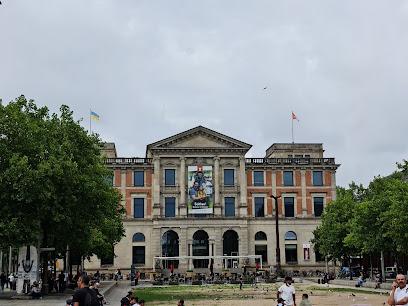
Bürgerpark Bremen
Discover the beauty of Bürgerpark Bremen, a serene urban oasis offering lush landscapes, tranquil lakes, and a perfect getaway for nature lovers and families alike.
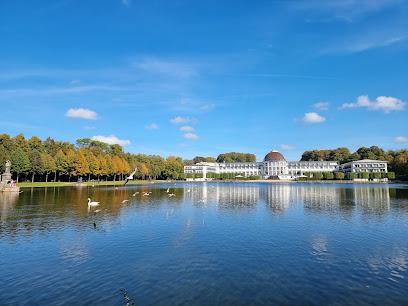
Weserwehr
Explore the beautiful Weserwehr in Bremen, a perfect blend of nature and engineering along the scenic Weser River.
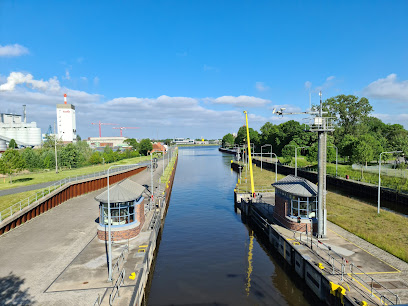
Bremen Town Hall
Explore the breathtaking Bremen Town Hall, a UNESCO World Heritage site, showcasing Gothic architecture and rich history in the heart of Bremen.
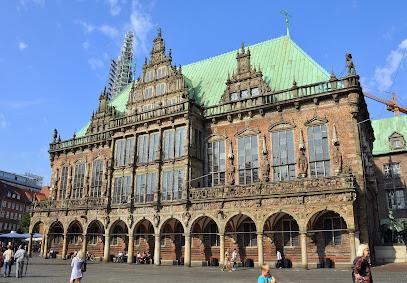
Weser Promenade Bremen
Discover the beauty of Weser Promenade in Bremen, a perfect blend of scenic views, local culture, and vibrant activities along the river.
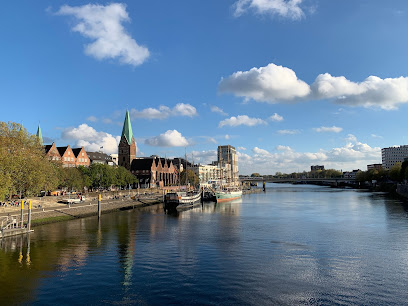
Haus Schütting
Discover the historical elegance of Haus Schütting, Bremen's iconic landmark that showcases Renaissance architecture and vibrant local culture.
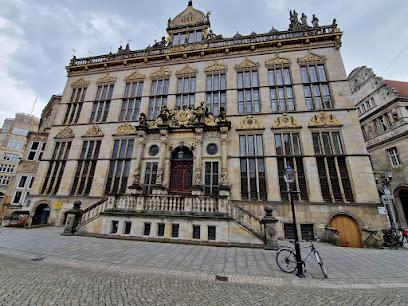
Bleikeller
Uncover the secrets of Bremen’s past at Bleikeller, a captivating museum beneath the iconic cathedral featuring mummies and medieval artifacts.
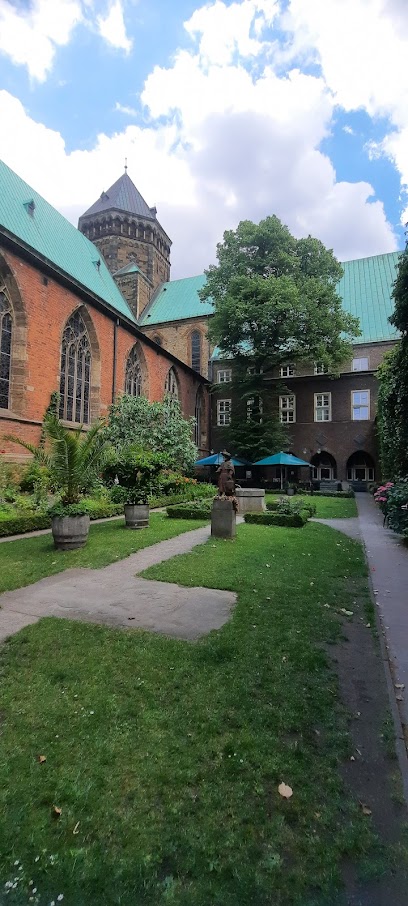
Essential places to dine
Paulaner's an der Schlachte
Discover authentic Bavarian cuisine at Paulaner's an der Schlachte - where hearty meals meet warm hospitality along Bremen's scenic riverfront.
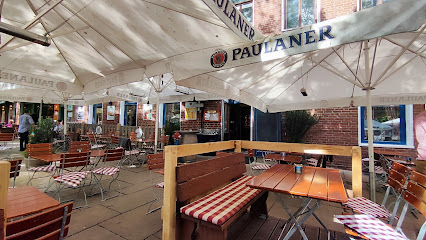
El Mundo Bremen
Discover the vibrant flavors of El Mundo Bremen - where international cuisine meets local charm in the heart of Walle.
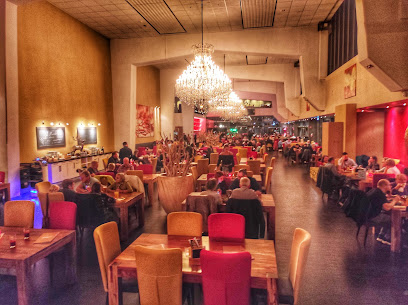
1885 Die Burger Bremen
Savor mouthwatering American-style hamburgers at 1885 Die Burger Bremen, where quality meets comfort in a vibrant setting.
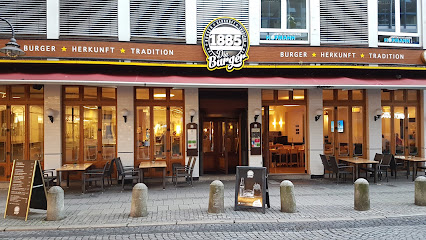
Restaurant Tendüre Bremen
Discover authentic Turkish cuisine at Restaurant Tendüre Bremen – where every meal is a celebration of flavor and tradition.
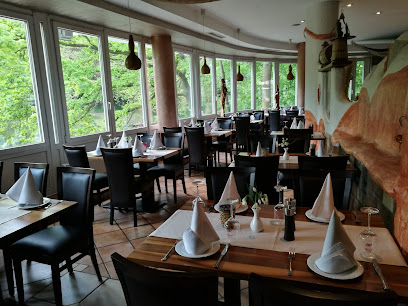
Restaurant ELISA
Discover the essence of Mediterranean cuisine at Restaurant ELISA in Bremen, offering exquisite dishes from Greece, Italy, and Turkey.
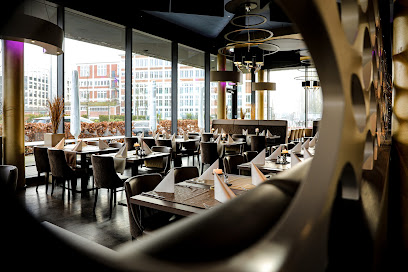
Restaurant Luv
Experience the heart of German gastronomy at Restaurant Luv in Bremen's scenic Schlachte promenade.
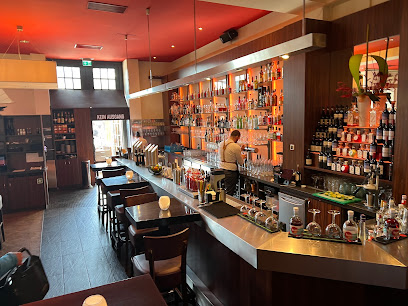
Q1 - Metropolitan Kitchen & Bar
Discover a culinary gem in Bremen with diverse flavors from American to Asian cuisine at Q1 - Metropolitan Kitchen & Bar.
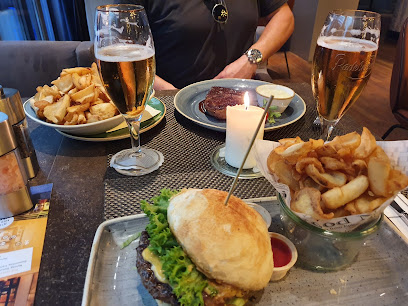
Feldmann's Bierhaus
Experience authentic German cuisine and local brews at Feldmann's Bierhaus, a vibrant gem along Bremen’s historic Schlachte.
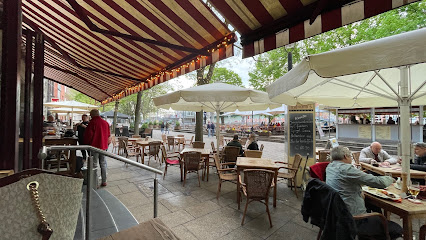
Bremen Ratskeller
Discover authentic German cuisine and local wines at Bremen Ratskeller, a historic restaurant in the heart of Bremen's market square.
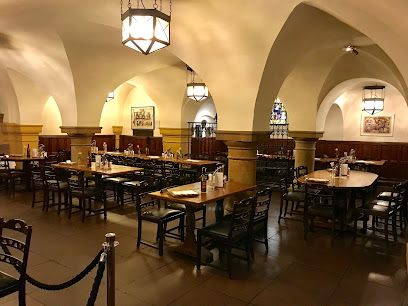
Muchos más
Indulge in authentic Spanish cuisine at Muchos Más – where vibrant flavors meet warm hospitality in Bremen.
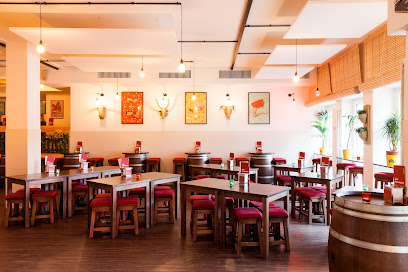
Gaststätte Kleiner Olymp
Discover authentic German flavors at Gaststätte Kleiner Olymp in Bremen – where traditional cuisine meets warm hospitality.
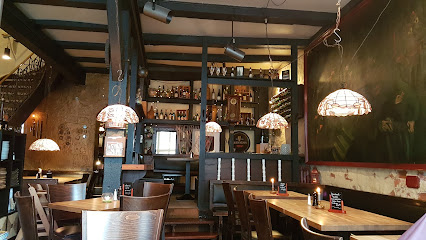
Schüttinger Gasthausbrauerei
Discover the authentic flavors of Bremen at Schüttinger Gasthausbrauerei - where traditional German cuisine meets house-brewed beer.
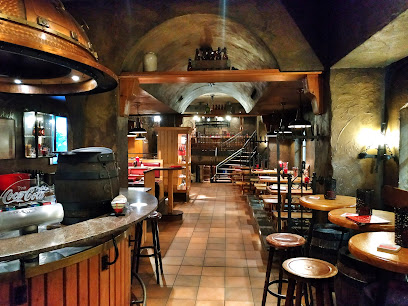
VAI VAI Bremen
Experience culinary excellence at VAI VAI Bremen - where mouthwatering steaks meet vibrant ambiance in the heart of the city.
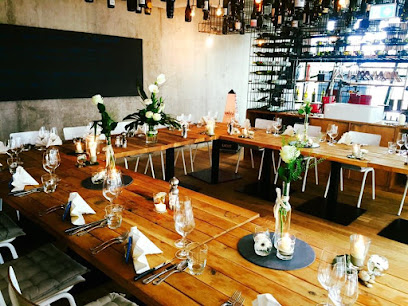
Restaurant Al Dar Bremen
Experience authentic Syrian flavors at Restaurant Al Dar Bremen - a culinary gem offering exquisite dishes and warm hospitality.
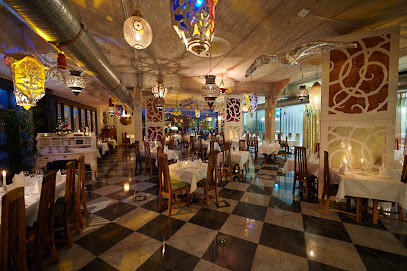
Bolero Schlachte
Experience Bremen's vibrant culinary scene at Bolero Schlachte, where delicious food meets stunning riverside views in a lively atmosphere.
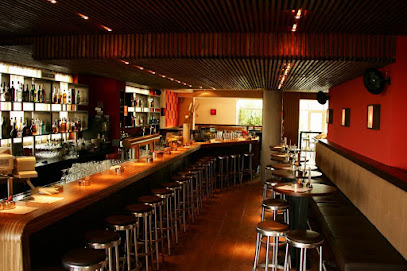
Markets, malls and hidden boutiques
Waterfront
Discover the ultimate shopping experience at Waterfront Bremen with diverse shops, delightful dining, and scenic views.
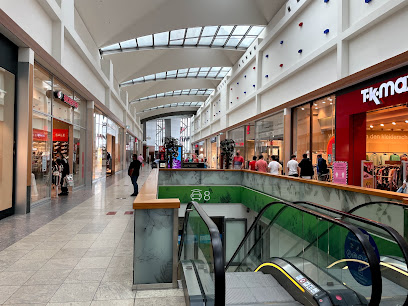
Weserpark
Explore the vibrant Weserpark in Bremen, a premier shopping destination with diverse stores, dining, and entertainment for every traveler.
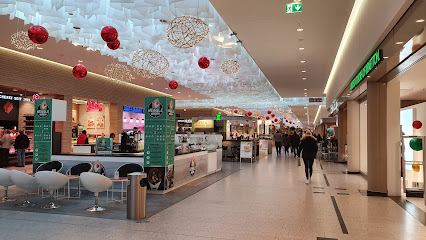
Roland-Center
Explore Roland-Center in Bremen for an unparalleled shopping experience with a variety of stores, dining options, and family-friendly amenities.
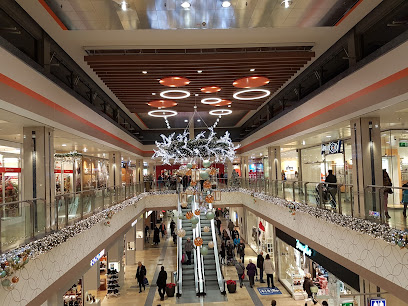
Primark
Explore affordable fashion at Primark in Bremen's Waterfront Center, where trendy styles meet unbeatable prices for every shopper.
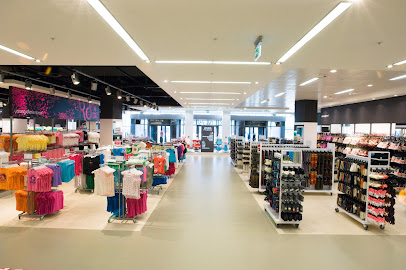
Karstadt Bremen
Explore the vibrant Karstadt Bremen, a shopping paradise in the heart of the city offering fashion, home goods, and delightful local culture.
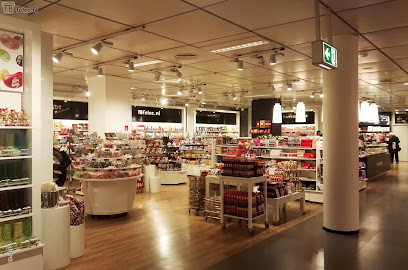
SANDER CENTER clever shopping
Explore the Sander Center in Bremen for an unforgettable shopping experience with diverse stores, dining options, and lively events.
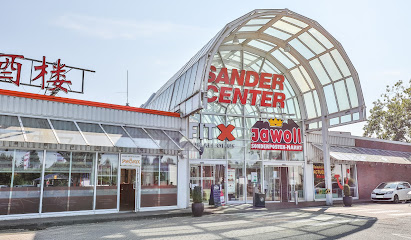
Lloyd Passage
Discover the vibrant shopping experience at Lloyd Passage in Bremen, where local charm meets international flair in a stunning setting.
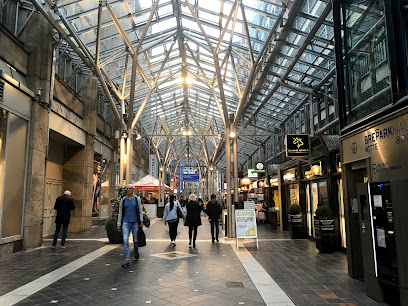
C&A
Explore C&A in Bremen for stylish, affordable clothing for the whole family, blending fashion with sustainability in a vibrant shopping atmosphere.
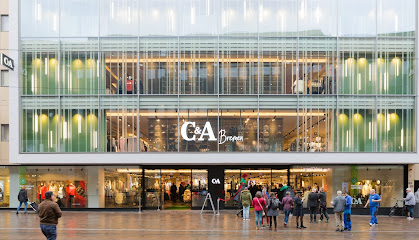
Bremer Bonbon Manufaktur
Explore the enchanting Bremer Bonbon Manufaktur for handcrafted sweets that delight the senses in the heart of Bremen, Germany.
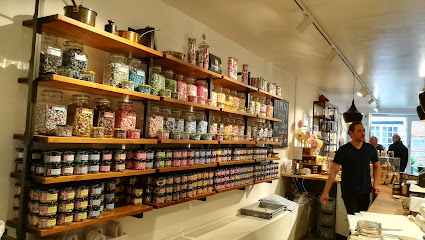
Manufactum Warenhaus
Discover unique gifts and local treasures at Manufactum Warenhaus, Bremen's premier destination for quality home goods, clothing, and gourmet groceries.
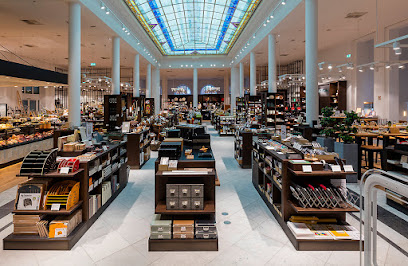
H&M
Explore H&M in Bremen for trendy clothing at affordable prices for men and children, making fashion accessible for everyone.
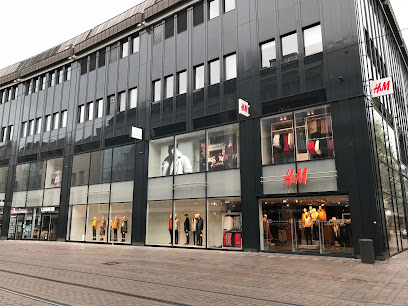
Go Bäng !
Explore Bremen's vibrant culture at Go Bäng!, your go-to gift shop for unique local art, trendy apparel, and unforgettable souvenirs.
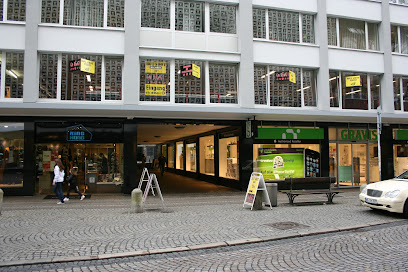
Domshof Passage
Explore the vibrant shopping scene at Domshof Passage in Bremen, a delightful mix of local boutiques and eateries in a charming setting.
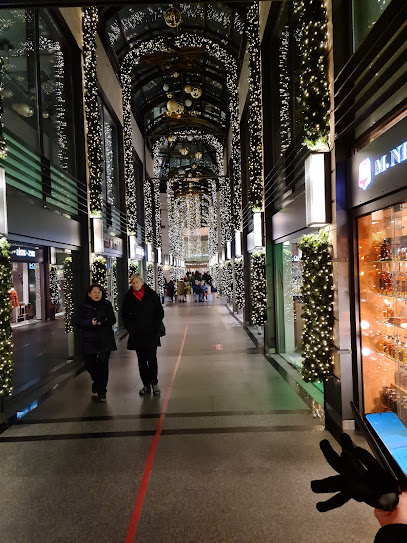
EuroShop
Explore EuroShop in Bremen for unique gifts, home goods, and fantastic discounts, all in one vibrant shopping location.
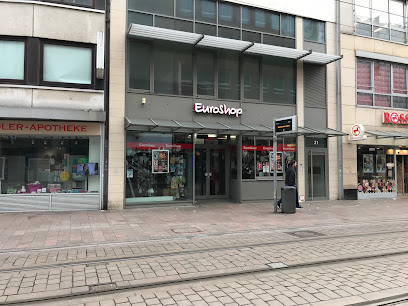
NEW YORKER
Explore the latest fashion trends at NEW YORKER in Bremen, offering stylish clothing and accessories for men, women, and youth at great prices.
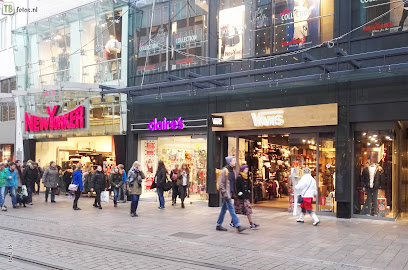
Essential bars & hidden hideouts
Paddy's Pit Irish Pub Bremen
Experience the vibrant Irish spirit at Paddy's Pit Irish Pub in Bremen, where great food, drinks, and live music come together.
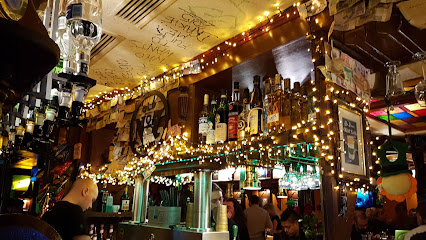
Red Rock
Discover the vibrant atmosphere of Red Rock in Bremen, where delightful drinks and a lively ambiance await you along the Schlachte river promenade.
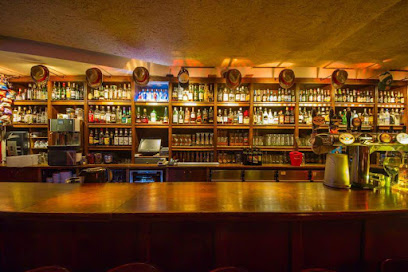
Spitzen Gebel - Bremen
Discover the lively atmosphere and delicious cuisine at Spitzen Gebel, Bremen's favorite pub and restaurant offering a taste of local culture.
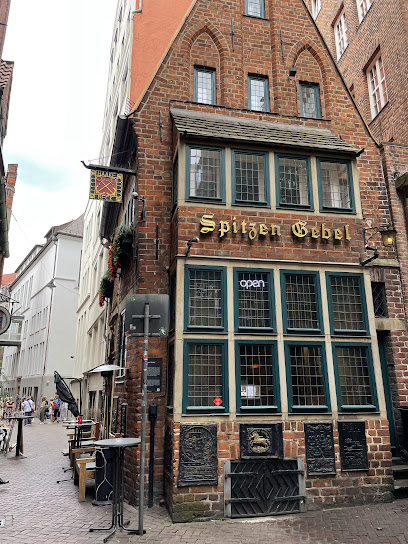
Eisen - Bremen
Experience the heart of Bremen's nightlife at Eisen, a cozy pub offering a wide selection of drinks and a welcoming atmosphere.
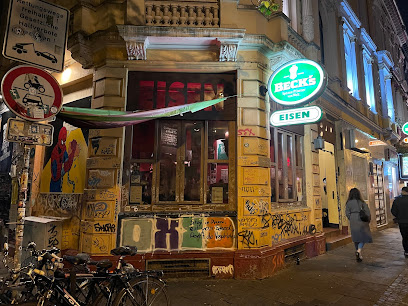
Blauer Fasan Bar Bremen
Discover Blauer Fasan Bar in Bremen - A cocktail haven blending modern vibes with classic charm, perfect for an unforgettable night out.
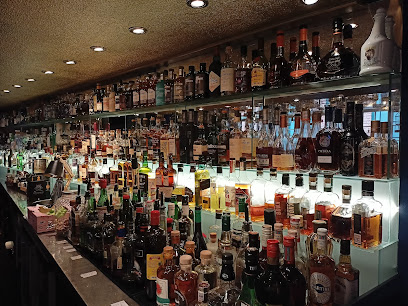
Schwarzer Hermann
Discover the vibrant atmosphere of Schwarzer Hermann, Bremen's beloved beer garden and bar, perfect for enjoying local brews and traditional German cuisine.
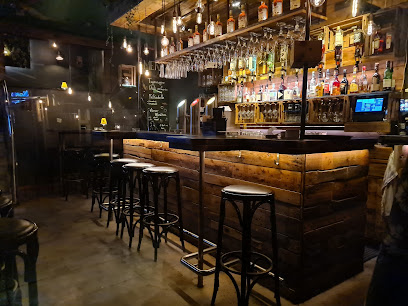
Loft
Experience the vibrant nightlife of Bremen at Loft, a stylish cocktail bar offering creative drinks and a lively atmosphere for tourists and locals alike.
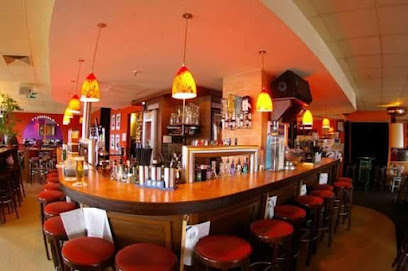
Brill No.6 - Bremen
Experience the vibrant cocktail scene at Brill No.6 in Bremen, a must-visit bar for unforgettable drinks and a lively ambiance.
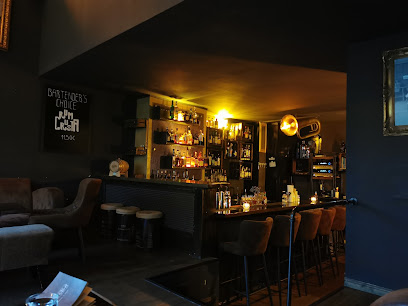
FRIENDS Bar
Experience Bremen's nightlife at FRIENDS Bar, where expert cocktails meet a welcoming atmosphere and vibrant community spirit.
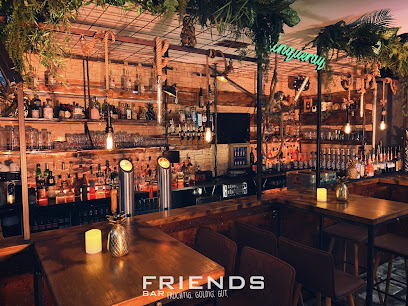
Heldenbar
Discover the heart of Bremen's nightlife at Heldenbar, where local culture meets a vibrant atmosphere and diverse drink selection.
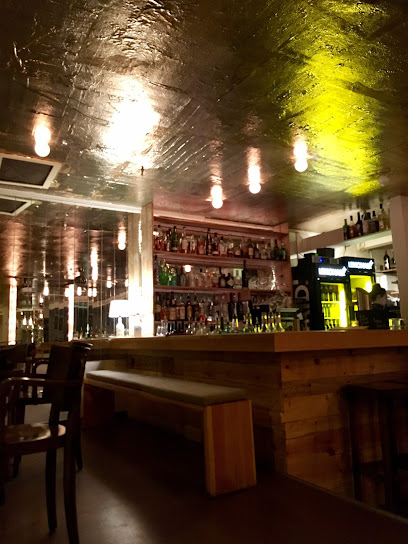
KONO bar sports bar & pub - Bremen
Experience the vibrant nightlife at KONO Bar in Bremen, where sports, live music, and karaoke come together in a lively atmosphere.
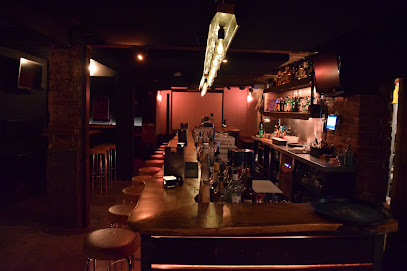
Capri Bar
Experience the vibrant nightlife of Bremen at Capri Bar, a cozy and energetic spot for cocktails and local brews in the Bermuda Dreieck.
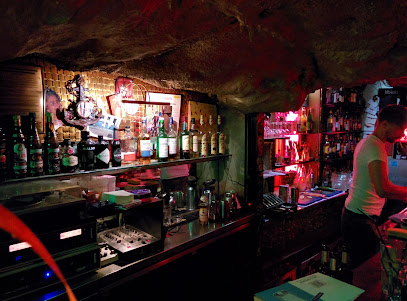
ChinChilla - Bremen
Discover ChinChilla in Bremen, a lively bar offering an extensive drink menu and a vibrant atmosphere perfect for socializing and enjoying the night.
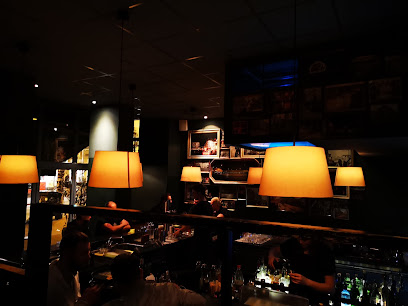
Grays Bar
Discover the vibrant atmosphere of Grays Bar in Bremen; a perfect blend of cocktails, local beers, and dart games in a cozy setting.
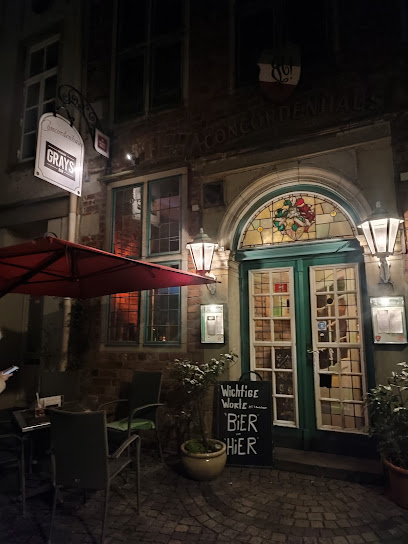
Local Phrases
-
- HelloHallo
[ha-lo] - GoodbyeAuf Wiedersehen
[owf vee-der-zay-en] - YesJa
[ya] - NoNein
[nine] - Please/You're welcomeBitte
[bi-teh] - Thank youDanke
[dahn-keh] - Excuse me/SorryEntschuldigung
[ent-shool-di-gung] - How are you?Wie geht es dir?
[vee gayt es deer] - Fine. And you?Gut. Und dir?
[goot oont deer] - Do you speak English?Sprechen Sie Englisch?
[shpre-khen zee eng-lish] - I don't understandIch verstehe nicht
[ikh fer-shteh-eh nikht]
- HelloHallo
-
- I'd like to see the menu, pleaseIch hätte gerne die Speisekarte, bitte
[ikh hah-teh gehr-neh dee shpey-ze-kahr-teh, bi-teh] - I don't eat meatIch esse kein Fleisch
[ikh es-se kine flysh] - Cheers!Prost!
[prohst] - I would like to pay, pleaseIch möchte bitte bezahlen
[ikh merkh-teh bi-teh beh-tsal-en]
- I'd like to see the menu, pleaseIch hätte gerne die Speisekarte, bitte
-
- Help!Hilfe!
[hil-feh] - Go away!Geh weg!
[gay vehg] - Call the Police!Rufen Sie die Polizei!
[roo-fen zee dee poh-lee-tsay] - Call a doctor!Rufen Sie einen Arzt!
[roo-fen zee i-nen ahrts] - I'm lostIch habe mich verirrt
[ikh hah-beh mikh feh-rirt] - I'm illIch bin krank
[ikh bin krank]
- Help!Hilfe!
-
- I'd like to buy...Ich möchte ... kaufen
[ikh merkh-teh ... kow-fen] - I'm just lookingIch schaue nur
[ikh shau-eh noor] - How much is it?Wie viel kostet das?
[vee feel kohstet dahs] - That's too expensiveDas ist zu teuer
[dahs ist tso toy-ehr] - Can you lower the price?Können Sie den Preis senken?
[kew-nen zee den preys zen-ken]
- I'd like to buy...Ich möchte ... kaufen
-
- What time is it?Wie spät ist es?
[vee shpet ist es] - It's one o'clockEs ist ein Uhr
[es ist iyn oor] - Half past (10)Halb (zehn)
[halb (tsayn)] - MorningMorgen
[mor-gen] - AfternoonNachmittag
[nahkh-mit-tahk] - EveningAbend
[ah-bent] - YesterdayGestern
[ges-tern] - TodayHeute
[hoy-teh] - TomorrowMorgen
[mor-gen] - 1eins
[ayns] - 2zwei
[tsvay] - 3drei
[dry] - 4vier
[feer] - 5fünf
[fuhnf] - 6sechs
[zeks] - 7sieben
[zee-ben] - 8acht
[akht] - 9neun
[noyn] - 10zehn
[tsayn]
- What time is it?Wie spät ist es?
-
- Where's a/the...?Wo ist ein/der...?
[vo ist iyn/dehr] - What's the address?Was ist die Adresse?
[vas ist dee ah-dreh-seh] - Can you show me (on the map)?Können Sie mir das zeigen (auf der Karte)?
[kew-nen zee meer dahs tsee-gen (owf dehr kar-teh)] - When's the next (bus)?Wann kommt der nächste (Bus)?
[vann kohmt dehr nekh-steh (boos)] - A ticket (to ....)Eine Fahrkarte (nach ....)
[i-ne fahr-kar-teh (nahkh ....)]
- Where's a/the...?Wo ist ein/der...?
History of Bremen
-
Bremen's history dates back to the early Middle Ages, with the first recorded mention of the city in 782 AD, when Charlemagne ordered the establishment of a diocese. By 787 AD, the town became the seat of the Bishopric of Bremen, marking the beginning of its religious significance.
-
In the 13th century, Bremen joined the Hanseatic League, a powerful economic and defensive alliance of merchant guilds and market towns in Northwestern and Central Europe. This membership significantly boosted Bremen's economic prosperity and maritime trade, establishing it as a key player in the region.
-
The Bremen Town Hall, built between 1405 and 1410, is a stunning example of Weser Renaissance architecture and a symbol of the city's independence and wealth. The Roland Statue, erected in 1404, stands in the market square as a representation of Bremen's freedom and rights. Both are UNESCO World Heritage Sites.
-
During the Protestant Reformation in the 16th century, Bremen embraced Lutheranism, leading to significant religious and political changes. The city's shift from Catholicism to Protestantism marked a new era in its religious landscape, influencing its cultural and social development.
-
The Thirty Years' War (1618-1648) had a profound impact on Bremen. Although the city managed to avoid significant destruction, it faced economic hardships and political challenges. Bremen's strategic location and alliances helped it navigate this tumultuous period.
-
In the early 19th century, Bremen fell under French control during the Napoleonic Wars. From 1810 to 1813, it was incorporated into the French Empire as part of the Département des Bouches-du-Weser. The city's liberation in 1813 marked the end of French occupation and the beginning of its recovery.
-
The 19th century brought industrialization and expansion to Bremen. The establishment of the Bremer Vulkan shipyard in 1893 and the development of the port facilities transformed the city into a significant industrial and maritime hub. This era saw rapid urban growth and economic diversification.
-
Bremen suffered extensive damage during World War II due to Allied bombing raids. The city's port facilities and industrial areas were primary targets. Post-war reconstruction efforts focused on rebuilding the infrastructure and restoring historical landmarks, leading to a modern yet historically aware Bremen.
-
Today, Bremen is a vibrant cultural and economic center. The city boasts a rich cultural scene, with numerous museums, theaters, and festivals. The Universum Science Center, the Übersee Museum, and the annual Freimarkt fair are just a few examples of Bremen's dynamic cultural offerings.
Bremen Essentials
-
Bremen is well-connected to other major cities in Germany and Europe. The Bremen Airport (Flughafen Bremen) offers flights to and from numerous destinations. The airport is conveniently located just 3.5 kilometers south of the city center. From the airport, you can take tram line 6, which will bring you directly to the city center in about 10-15 minutes. Bremen is also accessible by train, with frequent services from major cities like Hamburg, Berlin, and Cologne. The central train station (Bremen Hauptbahnhof) is located close to the city center. Additionally, Bremen is well-served by the Autobahn network, making it easy to drive to the city.
-
Bremen has an efficient public transportation system, including trams, buses, and regional trains. The Verkehrsverbund Bremen/Niedersachsen (VBN) operates the public transport network. Tickets can be purchased at kiosks, vending machines, or via the VBN mobile app. For convenient travel, consider purchasing a day pass or a Bremen Card, which offers unlimited travel on public transport within the city as well as discounts on various attractions. Taxis are also readily available and can be hailed on the street or booked via phone or app. For those who prefer cycling, Bremen is a bike-friendly city with numerous bike lanes and rental services.
-
The official currency in Bremen, as in the rest of Germany, is the Euro (EUR). Credit and debit cards are widely accepted in hotels, restaurants, and shops. However, it is advisable to carry some cash, especially for small purchases or in establishments that do not accept cards. ATMs are plentiful throughout the city, and you can use them to withdraw Euros with your international bank card. Note that some ATMs may charge a fee for withdrawals, so check with your bank beforehand.
-
Bremen is generally a safe city for tourists, but it is always wise to take standard precautions. Avoid poorly lit areas and parks at night, and be mindful of your belongings in crowded places such as markets and public transport. The Viertel district, while vibrant and popular, has a higher incidence of petty crimes like pickpocketing, so remain vigilant. In case of any safety concerns, you can contact the local police by dialing 110.
-
In case of emergency, dial 112 for medical emergencies or fire, and 110 for police assistance. Emergency services in Germany are prompt and reliable. There are several hospitals and clinics in Bremen, including Klinikum Bremen-Mitte and Klinikum Bremen-Nord, which offer comprehensive medical services. Pharmacies (Apotheken) are abundant, and many have extended hours or are open 24/7. It is advisable to carry a copy of your health insurance details and identification at all times.
-
Fashion: Do dress neatly and appropriately, especially when dining out or visiting historical sites. Casual wear is acceptable, but avoid overly revealing clothing. Religion: Do show respect when visiting religious sites. Silence your phone and avoid taking photos during services. Public Transport: Do validate your ticket before boarding. Don't eat or drink on public transport. Greetings: Do greet people with a firm handshake and maintain eye contact. It's customary to say 'Guten Tag' (Good day) or 'Hallo' (Hello). Eating & Drinking: Do try local specialties like Bremer Klaben and Labskaus. Don't forget to tip in restaurants, usually around 5-10%.
-
To experience Bremen like a local, visit the weekly markets at Domshof or Findorffmarkt for fresh produce and local delicacies. Explore the Schnoor district, a charming medieval quarter with narrow streets and artisan shops. Take a leisurely walk along the Weser River or rent a bike to explore the city's extensive cycling routes. Don't miss a visit to the Universum Bremen, a science museum popular with both locals and tourists. For an authentic dining experience, try Ratskeller, located in the historic Town Hall, which offers traditional Bremen cuisine.
Trending Landmark in Bremen
Nearby Cities to Bremen
-
Things To Do in Hamburg
-
Things To Do in Hannover
-
Things To Do in Munster
-
Things To Do in Groningen
-
Things To Do in Lubeck
-
Things To Do in Zwolle
-
Things To Do in Sønderborg
-
Things To Do in Essen
-
Things To Do in Arnhem
-
Things To Do in Nijmegen
-
Things To Do in Rostock
-
Things To Do in Dusseldorf
-
Things To Do in Ribe
-
Things To Do in Amersfoort
-
Things To Do in Esbjerg

















